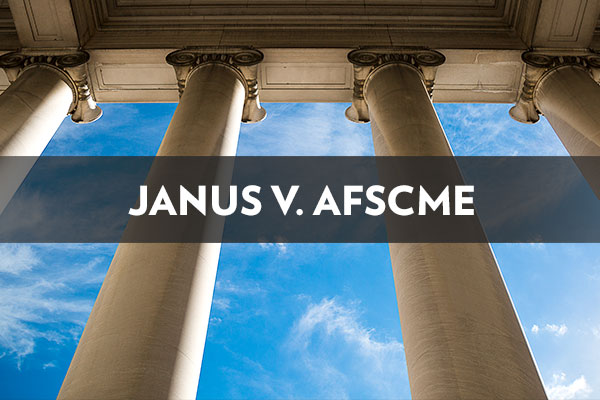Memo

Restoring Public Sector Workers’ Resignation Rights
The U.S. Supreme Court decision in Janus v. AFSCME ruled public sector fair share fees unconstitutional. However, many public sector workers remain unaware of their new-found rights to reject union membership without paying a fee. Further, state law severely limits resignation opportunities—potentially trapping workers for years. These restrictions have been ruled unconstitutional in other states.
Need for Notification of Resignation Rights
- Pennsylvania’s Public Employe Relations Act 195 (PERA), Act 84 of 1988, and Fair Share Fee Law Act 15 permit government unions to collect fees from nonmembers. While the Janus decision rules portions of these laws unconstitutional, they have not been formally amended or repealed.
- Any government agency that continues to collect fees without express consent from a non-member could be sued.
- A May 2018 survey revealed 57 percent of teachers never heard about Janus. This means many of the 330,000 Pennsylvanians impacted by the decision will be unaware of their right to not pay fair share fees.
- Unions are already working to make resignation more onerous in other states. Government union leaders have instructed local affiliates—and successfully lobbied lawmakers—to limit when members can resign and are seeking to restrict communication with workers about their rights. For example:
- New Jersey’s A3686 amends public disclosure laws to now prohibit public employers from sharing employees’ basic contact information, and further limits union membership resignation to an annual 10-day window.
- California’s SB 866 restricts public employers from communicating with workers about their union and workplace rights.
- New York’s state budget and Hawaii’s HB1725 prevent employees from leaving their unions except during a brief resignation window.
- In Pennsylvania, Rep. Maureen Madden and Rep. Tom Mehaffie plan to introduce legislation giving unions captive-audience meetings with new public employees and stripping workers of their secret ballot union election rights.
How Maintenance of Membership Traps Members
- Employees governed under PERA’s “maintenance of membership” provision can only resign union membership during a 15-day window prior to the expiration of their contracts. Individual contracts can modify the resignation date.
- Public sector unions require members to submit a resignation letter by certified mail to a specific address within the time frame, yet unions face no requirement to notify workers of their upcoming resignation window.
- This leaves many workers unaware of their specific resignation date and could force workers to maintain unwanted union membership.
- Resignation restrictions have been deemed unconstitutional in other states, meaning Pennsylvania’s existing resignation restrictions are susceptible to legal challenge.
- After Michigan outlawed forced fees in 2012, the state union changed the resignation letter address without public notice. Eventually, the Michigan Supreme Court affirmed public school teachers can resign at any time.
- Public employees in Maine and Minnesota also successfully demanded to immediately resign their membership and stop paying dues, instead of waiting weeks or months.
Solution: Removing Union Membership Restrictions
- Rep. Kate Klunk introduced HB 2571 to protect the rights of public employees who are not—or do not want to be—union members. This legislation:
- Amends PERA,
- mandating employers to notify nonunion members, every payday, that union payments are voluntary, require their consent, and are not a condition of employment;
- requiring employers to notify new applicants that union membership is not a condition of employment and nonmembers are not obligated to make union payments;
- prohibiting employer payroll deductions from nonmembers to a union (dues deduction remains unaltered).
- Repeals Act 84 of 1988 and the Fair Share Fee Law, which authorize fair share fees in violation of the Janus ruling.
- Amends PERA,
- Rep. Fred Keller plans to introduce legislation to inform members of their resignation window.
- The bill requires unions to notify members of their resignation rights every January and during the ten-day period before the resignation window.
- The bill also expands the resignation period from 15 days to 45 days.
Given union leaders long-standing and renewed attempts to maintain membership regardless of public employees’ preferences, public sector workers must be proactively and routinely notified of their membership rights through legislative action. All workers deserve the opportunity to understand and exercise their resignation rights at any time.